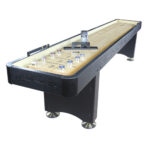Sneezing unexpectedly during a meeting. That’s annoying. A surprise sinus surgery? That’s life-changing. But have you ever experienced a constant ringing in your ears? That’s tinnitus. It’s a condition that challenges even the best otolaryngologists (ear, nose, and throat doctors). These medical experts are now rising to the occasion, finding innovative ways to tackle this stubborn condition. This blog will walk you through their mission, their methods, and their dedication to offering relief to those afflicted with tinnitus.
The Issue at Hand: Tinnitus
Tinnitus is like a nagging neighbor. Always there. Always making noise. It’s an internal sound that can take the form of ringing, hissing, or buzzing. The American Tinnitus Association estimates that over 50 million Americans experience some form of tinnitus. That’s a large group of people looking for answers.
The Heroes of the Story: Otolaryngologists
Let’s talk about our heroes. Otolaryngologists. They are the knights in white coats fighting the tinnitus dragon. They use the latest research, the best technology, and a whole lot of patience. They are committed to helping tinnitus sufferers find relief.
The Battle Plan: Innovative Approaches
So, what’s the plan? How are these medical experts tackling tinnitus? They are using a mix of methods. Here are three of their primary strategies:
- Cognitive Behavioral Therapy (CBT)
- Sound Therapy
- Medications
Each one of these methods has its own merits. Let’s look at them in a bit more detail.
Method 1: Cognitive Behavioral Therapy (CBT)
Cognitive Behavioral Therapy isn’t just for mental health issues. It’s proving effective for tinnitus, too. CBT helps patients change their reaction to the tinnitus noise. The goal is not to eliminate the noise. The goal is to make the noise less bothersome.
Method 2: Sound Therapy
Sound therapy is like a lullaby for tinnitus. It uses external noises to distract the brain from the internal noise. This could be a white noise machine, a fan, or even a specialized tinnitus masker. The options are many, and the results are promising.
Method 3: Medications
Last but not least, medications. There is no magic pill for tinnitus. However, some medications can help manage the symptoms. This could be a medication for anxiety or depression. Or it could be a medication to help manage the perception of noise.
A Look at the Numbers
| Treatment Method | Effectiveness |
| Cognitive Behavioral Therapy (CBT) | 75% of patients reported improvement |
| Sound Therapy | 60% of patients reported improvement |
| Medications | Varies widely, depending on the specific medication and individual patient |
Tinnitus is a tough opponent. But with otolaryngologists leading the charge, progress is being made. They are employing innovative strategies, staying committed, and most importantly, offering hope to those living with this challenging condition.









